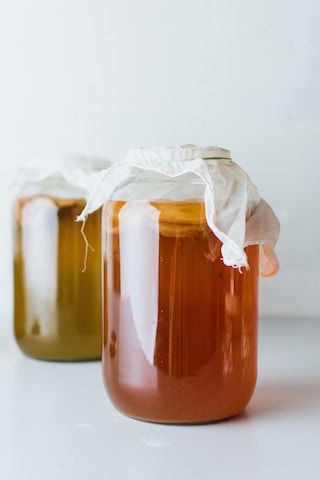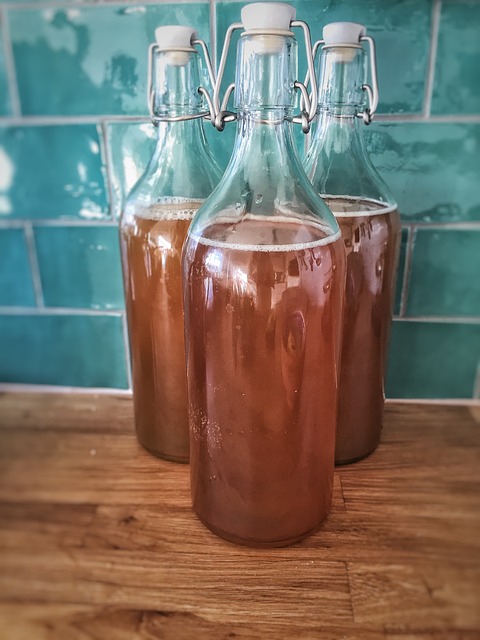You probably have heard different celebrities or fitness foodies rave about the latest drink, kombucha. This bitter mixture of tea, sugar, and bacteria has made waves due to its supposed health benefits like improving your digestion. However, the taste has also put many people off, and for good reason. It tastes very acidic, almost like downing pure vinegar! While there are versions that are easier on the tastebuds, like blueberry vanilla and strawberry flavors, it does make you wonder, is the drink worth it? Here to break down if the reported health benefits of kombucha really stack up!
well it is officially. After years of making fun of both, I now eat activia yogurt and drink kombucha. life comes at you fast
— christine teigen (@chrissyteigen) August 11, 2019
The Origins Of Kombucha
Although kombucha is extremely popular these days, this fermented tea has actually been around for over 2,000 years! In Ancient China, people used this drink as a remedy for different ailments like cancer, arthritis, and inflammation. Another reason it is increasingly popular today is because it is so easy to make! One only needs tea, sugar and active starter kombucha culture. The whole process to create the fermented drink takes about ten days if you decide to brew it at home.

Is Drinking A Fermented Beverage Worth It?
The idea of drinking a fermented beverage sounds less than appealing for most. However, supermarkets all around the world have been increasingly stocking up on fermented foods and drinks such as kimchi, kefir, and kombucha. The main reason is that these fermented foods are filled with probiotics, the “good bacteria.” These probiotics have been studied to improve our immune systems, digestion, and relieve certain effects of food allergies.
While this list sounds very extensive, there is very little scientific evidence to prove these benefits are applicable to humans, as most testing has been done on rats. However, one very important finding was that kombucha had properties that reduced a rodent’s sensitivity to induced stress. The hypothesis is this antioxidant effect would also work on humans in a similar manner.

Potential Booze Effects of Kombucha
One major concern that has arisen with the popularity of kombucha is its booze content. Due to the fermentation process, most kombucha’s naturally have an alcohol content (albeit low). However, some companies have been selling bottles of kombucha with a higher alcohol content than claimed on the bottle. This resulted in many stores removing certain brands of the drink from their shelves due to misinformation. But don’t be alarmed by the booze- most drinks contain less than .5% alcohol, so the chances of getting even a buzz are minimal.
Bottom Line

The amount of potential health benefits that come from consuming kombucha seem to balance out the bitterness. However, this is only if the brewing conditions are certifiably sanitary. Many people who make the drink at home don’t follow as strict a cleaning regimen as a company bottling the beverage would, resulting in contaminated kombuchas that can be life-threatening to drink. Given the risk, it is probably safest to buy bottles pre-made at a food store!
Photos: Unsplash, Pixabay
